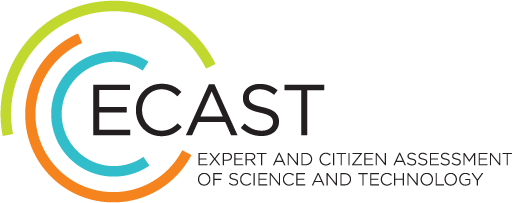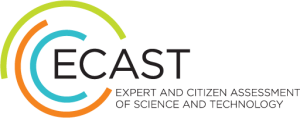In its history, the Earth has been repeatedly struck by asteroids, large chunks of rock from space that can cause considerable damage in a collision. Can we—or should we—try to protect Earth from potentially hazardous impacts?
How about harvesting asteroids for potential economic benefits? Could asteroid exploration be used to boost our capabilities and help clear a pathway to Mars? How should we balance costs, risks, and benefits of human exploration in space?
Sounds like stuff just for rocket scientists. But how would you like to be part of this discussion?
An innovative project between NASA, the US government’s space agency, and a group led by Arizona State University called ECAST—Expert and Citizen Assessment of Science and Technology—is doing just that: offering ordinary citizens a say in decisions about the future of space exploration.
How you can participate
In November, several hundred people in Phoenix, Boston, and online came together to learn about NASA’s Asteroid Initiative and to consider and discuss different approaches to dealing with the opportunities and threats posed by asteroids. The video below shows some highlights from the Phoenix forum.
The next phase of Informing NASA’s Asteroid Initiative is an open forum where we invite everyone to participate and weigh in on the questions considered by the in-person and online forums.
This phase is open now, and anyone can participate. Visit ecastonline.consider.it to learn more.
Why participate?
“Public engagement is crucial to the effective development of science and technology policy,” said David Guston, Co-director of the Consortium for Science, Policy & Outcomes (CSPO), one of the founding members of ECAST. “It is essential to consider input from diverse constituents, and nowhere are citizens’ values, hopes and dreams more important than in the future of the planet and the future of humans in space.”
About ECAST
ECAST is a network of different institutions, launched in 2010 to provide a 21st Century model for technology assessment. It combines the research strengths of universities like Arizona State University with the skills of nonpartisan policy research organizations and the education and outreach capabilities of science museums and citizen science programs.
Three of the five ECAST founding partners, the Consortium for Science, Policy and Outcomes (CSPO) at ASU, the Museum of Science, Boston and SciStarter.com (in partnership with the Science Cheerleaders) are working with NASA to design, convene and evaluate two forums of about 100 demographically diverse participants each in Phoenix and Boston, as well as an online and texting forum open to the general public to collect informed views on NASA’s Asteroid Initiative. The report and assessments from the forums will provide input to guide the initiative’s direction and related public engagement activities.

